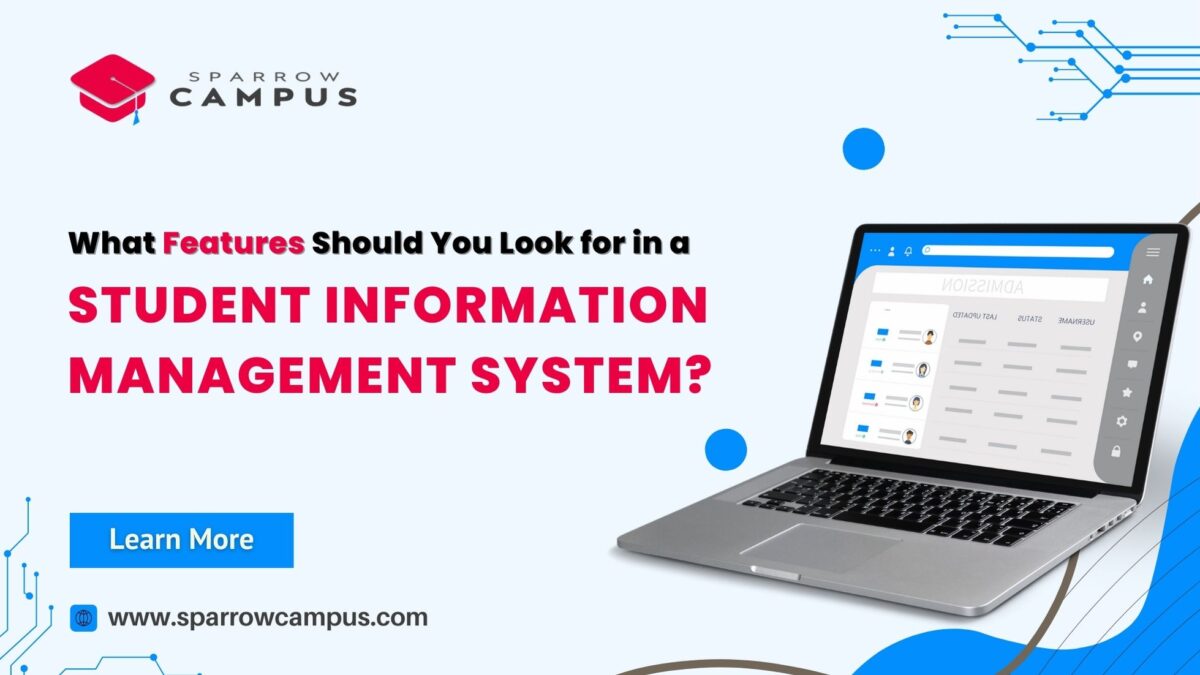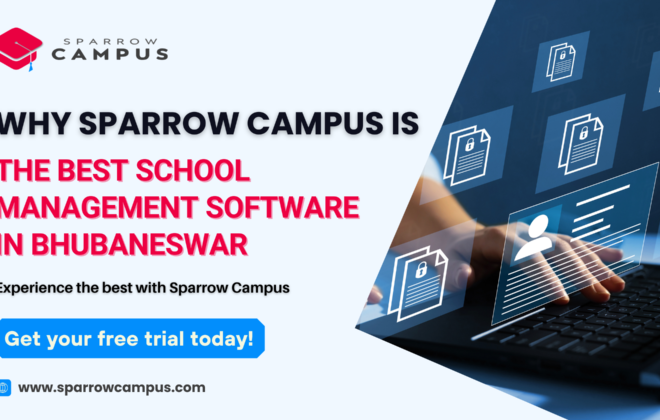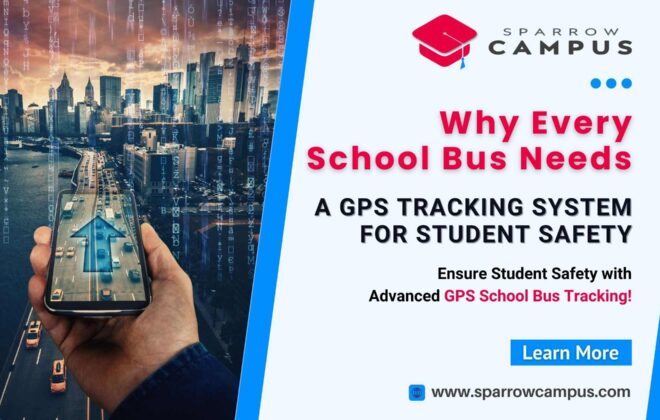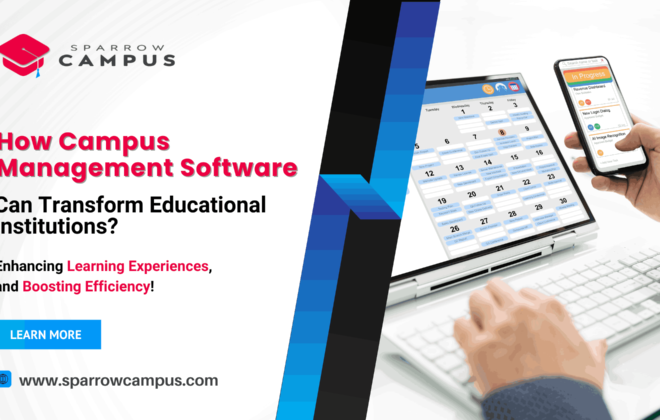What Features Should You Look for in a Student Information Management System?
In today’s tech-savvy educational world, schools and colleges are raising the bar with Student Information Management Systems (SIMS). Yes, the future is here, and it’s paperless. Did you know over 90% of institutions now rely on digital systems to streamline their operations, from taking attendance with a tap to tracking the campus bus in real-time? So, what’s all the buzz about, and how does the right SIMS make student life easier (and administrators a little happier)? To understand more let’s have a discussion about the the must-have features that make SIMS a game-changer for modern campuses everywhere.
7 Features You Must Have In A Student Information Management Software
Management of Academics
To make scheduling, class planning, and student examination easier, a sustainable SIMS must have comprehensive educational administration tools. A robust academic management tool enables:
Course & Curriculum Management: To guarantee that students always have access to the most recent material, administrators may develop, update, and organise guides while also handling conditions and credit requirements.
Grade and Report Generation: The grading process is streamlined by automatically calculating grades and creating report cards. It must have editable templates for creating perceptive, easily comprehensible scholar performance reports.
Attendance monitoring: In addition to making it simple to keep reports, effective attendance monitoring provides observable documentation of student involvement in daily classes, which is essential for maintaining transparency and monitoring students activities.
Management of Hostels
A specific hostel control feature is beneficial for educational institutions that provide residential amenities. This module provides resources for:
Tracking Availability and Room Allocation: Automated room assignments streamline the allocation process, reducing the risk of overbooking and guaranteeing optimal utilisation of available resources.
Billing and Fee Collection: Integrated pricing management tracks room rates, past-due payments, and other costs related to the hostel stay.
Maintenance and Incident Reporting: This feature makes it possible for residents to quickly document issues or maintenance requests, which expedites communication with centre management and guarantees prompt answers.
Fee Collection and Management
One of the most important yet challenging facets of school administration is fee management. A rate management module that streamlines and automates this process must be a part of a functional SIMS. Important characteristics include:
Automated Billing and Invoice Generation: The gadget must automatically create invoices to help parents and students remember deadlines and outstanding costs.
Online Payment Options: The gadget lowers paperwork for administrators by integrating online price gateways, which enables parents to make payments safely and securely.
Payment Notifications and Reminders: While automated reminders assist avoid past-due payments, notification features make it simple for directors to talk to parents about outstanding balances.
Tracking attendance and biometrics
Monitoring attendance is crucial for maintaining records, adhering to regulations, and ensuring student involvement. This functionality is further enhanced by biometric attendance systems, which provide:
Accurate Attendance Records: By providing distinct data regarding who became present, past due, or absent, biometric tracking lowers the likelihood of human mistake or fraudulent attendance marking.
Automated Reports: If attendance declines, automated reporting enables early action by giving educators and administrators information about attendance characteristics.
Parental Notifications: By integrating with discern portals, parents may see real-time attendance data, which promotes clear communication between parents and administration.
Library Management
Library Management A robust SIMS should have a full library control function to expedite lending, monitoring, and inventory management. Libraries are essential to any academic community. This module permits:
Automated Book Cataloging and Inventory: Computerized stock control reduces the possibility of missing or lost materials, while a virtual catalogue enables college students and a team of employees to find and locate sources rapidly.
Effective Lending and Return System: The borrowing process is made hygienic and environmentally friendly by barcoded books, RFID tags, or QR codes. Furthermore, automatic due date reminders promote prompt returns.
Access to Digital Resources: Students’ learning options are expanded by a contemporary SIMS, which provides easy access to digital resources such as e-books, scholarly publications, and online databases.
Management of Live Classes
As digital knowledge has grown, live elegant control has become a crucial component of SIMS. This trait should encourage:
Real-time virtual classrooms: Interactive elements such as hand-raising, discussion, and display-sharing make for an engaging, immersive online learning environment.
Class recording and storage: Students who have access to recorded instruction can review lectures whenever it is convenient for them, which is especially helpful for those who may have missed a session.
Assignment Submission and Feedback: With integrated undertaking control, students may turn in their work immediately through the platform, and professors can give prompt feedback, facilitating a seamless learning experience.
Management of Exams
One of the trickiest aspects of educational management is exam management. This task is made more feasible by a SIMS with a well-designed exam control capability. This module must include:
Timetable Creation and Exam Scheduling: Automated scheduling makes it easier to introduce timetables, preventing conflicts and guaranteeing that checks are effectively prepared.
Assessment and Grading Tools: These tools improve evaluation accuracy by enabling automated grading for objective questions and expedited marking for subjective ones.
Management and Analysis of the Results: Since the results are computed and safely saved, it is simple to examine trends in student performance over time. The method also allows for the sharing of these reviews with the father and mother.
Real-time Bus Monitoring
Live bus tracking provides real-time data on the location and condition of campus transportation in a world where people are becoming more concerned about safety, giving parents and college administrators piece of mind. Important advantages include:
Real-Time GPS Monitoring: With GPS-enabled monitoring, parents and directors can keep an eye on each bus’s whereabouts, get real-time arrival time updates, and make sure that pickups and drops happen on time.
Route Optimization and Alerts: While push notifications notify parents when a bus is running late or has stopped, route optimization makes sure buses travel the most environmentally friendly routes, saving time and petrol.
Why Choose Sparrow Campus’s Student Information Management System?
Choosing the right student information management system may improve the educational experience for directors, parents, and college students. Sparrow Campus provides a comprehensive SIMS that incorporates all of the essential features mentioned, including biometric attendance, live bus monitoring, and control of the hostel and classes. Sparrow Campus’s gadget, which was designed with both performance and user experience in mind, ensures smooth administration, promotes transparency and enhances safety.
Tags In
Categories
Recent Posts
- Streamline Your Academic Workflow with an Efficient Exam Management System
- How an Attendance Management System Enhances Productivity in Educational Institutions?
- How Sparrow Campus’ ERP System Can Help Secure Your Institution’s Accreditation?
- Improving Your NAAC Ranking with Advanced College Management Software?
- How Does Sparrow Campus ERP Software Support Modern Education’s Management System






